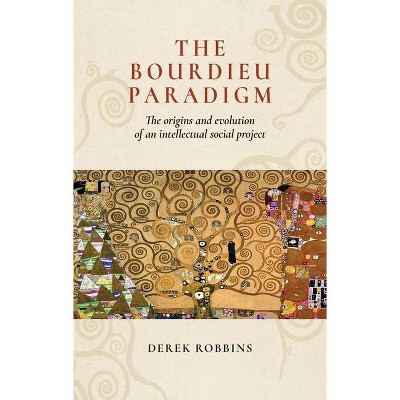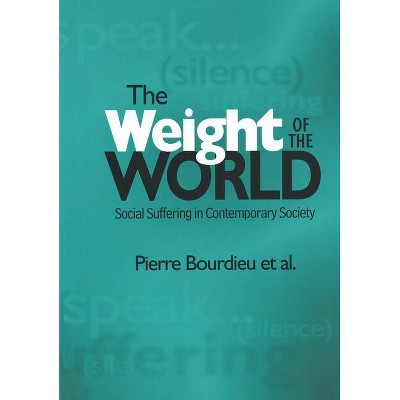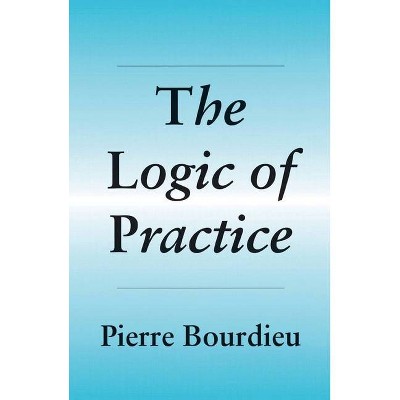The Bourdieu Paradigm - by Derek Robbins (Paperback)

Similar Products
Products of same category from the store
AllProduct info
<p/><br></br><p><b> About the Book </b></p></br></br>The book discusses relations between philosophy and empirical social sciences through detailed analyses of the work of Schutz, Gurwitsch and Merleau-Ponty, and then explores the development of Bourdieu's sociological reflexivity as his attempt to reconcile this intellectualist legacy with social research and political action.<p/><br></br><p><b> Book Synopsis </b></p></br></br>Analysing the work of Schutz, Gurwitsch, Merleau-Ponty and Bourdieu, this book considers the historical development of competing philosophies of social science. It examines the relations between phenomenology, Gestalt psychology and empirical social science in the first half of the twentieth century and then explores the way in which Bourdieu responded to this legacy by advocating a form of reflexive social-scientific investigation, which would remain faithful to primary experience without disowning accumulated intellectualism. The book asks whether the Bourdieu 'paradigm' retains value beyond the French conditions of its production. It offers an analysis of the development of Bourdieu's thought and practice which constitutes an invitation to readers generally to reassess the value of the western tradition of the social function of the detached intellectual for mass democratic societies.<p/><br></br><p><b> From the Back Cover </b></p></br></br><b>NOTE - Image of author to be included on back cover</b> By analysing the work of Schutz, Gurwitsch, Merleau-Ponty and Bourdieu, Derek Robbins considers the historical development, influenced by social context, of competing philosophies of social science. Through detailed scrutiny of key texts, <i>The Bourdieu paradigm</i> examines the relations between phenomenology, Gestalt psychology and empirical social science in the first half of the twentieth century. It explores the way in which Bourdieu responded to this legacy by gradually advocating a form of reflexive social scientific investigation which would remain faithful to primary experience without disowning accumulated intellectualism. The book asks whether the Bourdieu 'paradigm' retains value beyond the specifically French conditions of its production. Robbins traces a progression from thought to action, but with an emphasis on action informed by thought. He poses the question whether Bourdieu's attempted integration of intellectualism and empiricism correlated with his particular socio-historical situation or whether it offers a global paradigm for advancing inter-cultural understanding. The book confronts the question whether socio-political organisation is best understood by social scientists or by participants in society, by experts or by the populace. It will stimulate general consideration of the relevance of a sociological perspective in everyday life and how much that perspective should be dependent on inherited concepts.<p/><br></br><p><b> Review Quotes </b></p></br></br><br>'The Bourdieu Paradigm is a helpful contribution to existing writing on Bourdieu, particularly in its ability to conduct an analysis of the origins of his theoretical perspective. Given the increasing application of Bourdieu's theoretical tools across contemporary social scientific research, both in the United Kingdom and internationally, this book is a timely addition to scholarship, allowing researchers to reflect on the development of this sociological theory and providing insights into potential new directions.' LSE Review of Books<br><p/><br></br><p><b> About the Author </b></p></br></br>Derek Robbins is Emeritus Professor of International Social Theory at the University of East London
Price History
Price Archive shows prices from various stores, lets you see history and find the cheapest. There is no actual sale on the website. For all support, inquiry and suggestion messagescommunication@pricearchive.us




















